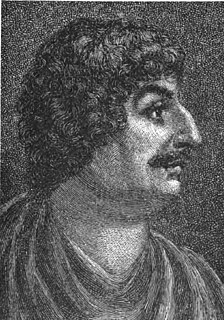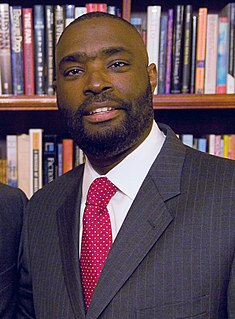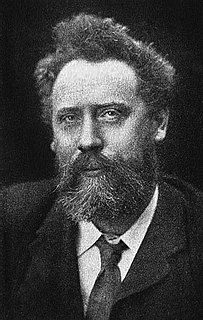A Quote by Robert Herrick
If little labour, little are our gains:
Man's fortunes are according to his pains.
Related Quotes
A little more kindness, A little less speed, A little more giving, A little less greed, A little more smile, A little less frown, A little less kicking, A man while he's down, A little more "We", A little less "I", A little more laugh, A little less cry, A little more flowers, On the pathway of life, And fewer on graves, At the end of the strife.
Holiness is the sum of a million little things — the avoidance of little evils and little foibles, the setting aside of little bits of worldliness and little acts of compromise, the putting to death of little inconsistencies and little indiscretions, the attention to little duties and little dealings, the hard work of little self-denials and little self-restraints, the cultivation of little benevolences and little forbearances.
The scriptures, for example, discredit an ancient philosophy that has come back into vogue in our day-the philosophy of Korihor that there are no absolute moral standards, that "every man prospers according to his genius, and that every man conquers according to his strength; and whatsoever a man does is no crime" and "that when a man is dead, that is the end thereof".
little sun little moon little dog and a little to eat and a little to love and a little to live for in a little room filled with little mice who gnaw and dance and run while I sleep waiting for a little death in the middle of a little morning in a little city in a little state my little mother dead my little father dead in a little cemetery somewhere. I have only a little time to tell you this: watch out for little death when he comes running but like all the billions of little deaths it will finally mean nothing and everything: all your little tears burning like the dove, wasted.
Who will cry for the little boy, lost and all alone?
Who will cry for the little boy, abandoned without his own?
Who will cry for the little boy? He cried himself to sleep.
Who will cry for the little boy? He never had for keeps.
Who will cry for the little boy? He walked the burning sand.
Who will cry for the little boy? The boy inside the man.
Who will cry for the little boy? Who knows well hurt and pain.
Who will cry for the little boy? He died and died again.
Who will cry for the little boy? A good boy he tried to be.
Who will cry for the little boy, who cries inside of me?
The Little Boy and the Old Man Said the little boy, "Sometimes I drop my spoon." Said the old man, "I do that too." The little boy whispered, "I wet my pants." I do that too," laughed the little old man. Said the little boy, "I often cry." The old man nodded, "So do I." But worst of all," said the boy, "it seems Grown-ups don't pay attention to me." And he felt the warmth of a wrinkled old hand. I know what you mean," said the little old man.
You are different from the really great man in only one thing: The great man, at one time, also was a very little man, but he developed one important ability: he learned to see where he was small in his thinking, and actions. Under the pressure of some task which was dear to him he learned better and better to sense the threat that comes from his smallness and pettiness. The great man, then, knows when and in what he is a little man.
Behold me waiting—waiting for the knife.... The thick, sweet mystery of chloroform, The drunken dark, the little death-in-life.... [F]ace to face with chance, I shrink a little: My hopes are strong, my will is something weak. ...I am ready But, gentlemen my porters, life is brittle: You carry Cæsar and his fortunes—steady!






































